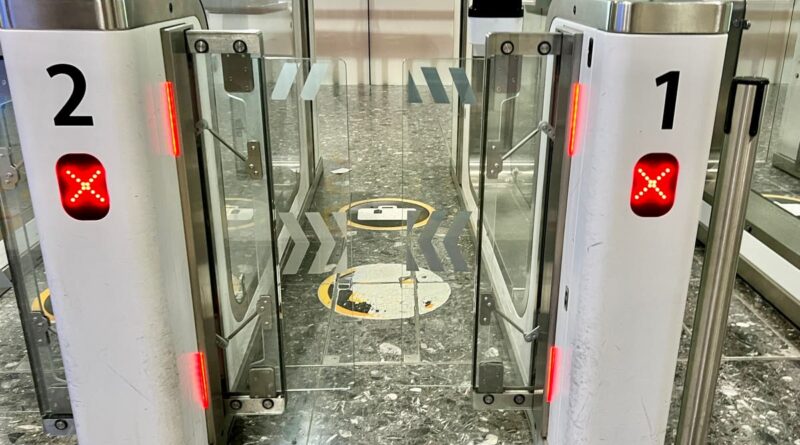Government told e-gates no longer reliable after latest meltdown causes passenger chaos
The prospect of further airport chaos has been raised with a warning to the government that the e-gates system which automatically checks travellers’ passports is no longer reliable – following yet another nationwide meltdown.
Airports including Heathrow, Gatwick, Manchester, Stansted and Edinburgh saw long queues and delays after the country’s Border Force passport e-gates were hit by a nationwide glitch on Tuesday.
It marks the second e-gates failure in as many weeks, and also follows the late May bank holiday outage of less than a year ago. But with the cause of the latest failure currently unknown, it is unclear whether the incidents are connected.
In a statement early on Wednesday, the Home Office said: “As soon as engineers detected a wider system network issue at 7.44pm last night, a large scale contingency response was activated within six minutes … e-gates at UK airports came back online shortly after midnight.”
Home Office minister Tom Pursglove told MPs on Wednesday that an investigation had determined the incident was caused by “technical issues within the Home Office network”.
“At this stage, I can assure the House and the wider public that all security checks were maintained throughout. Border security was not compromised at any point and there is no indication of malicious cyber activity. Police access to operational systems was unaffected.”
He further stated: “I sincerely apologise for the disruption that occurred. I can assure the House that the Home Secretary and I will be unswerving in our determination to ensure that every possible lesson is learned, to ensure that this does not happen again.”
But his Labour counterpart Dan Jarvis warned that the recent string of failures was “unacceptable” and “brings into sharp focus how the current high capacity e-gates system is no longer reliable enough”.
The system “risks further damaging public trust in the government’s management of our border security”, Mr Jarvis warned, adding: “Britain’s border system should at all times allow lawful entry into our country and stop illegal entry. The safety and security of our country depends on it.”
IT and cyber experts appeared somewhat reassured by the Home Office’s apparent speed in resolving Tuesday’s meltdown – but also warned that future failures remained a possibility.
“Without knowing the root of the outage, it is hard to predict whether it will happen again, although I am sure the company responsible will be doing everything it can to avoid repeat incidents,” said Eran Shiff, a vice-president at cybersecurity firm AlgoSec.
Caroline Carruthers, chief executive of global data consultancy Carruthers and Jackson, added: “Whenever the running of a vital operation is dependent on science and IT, there is never a guarantee of complete reliability, and there is always the possibility that something unexpected could occur.”
While Ms Carruthers noted that “a similar meltdown could repeat itself for one of a million reasons at some point in the future”, she added: “I’m sure learning has been taken from this recent issue, so it could even be less likely that the problem repeats itself.
“It’s clear from the Home Office’s response that, due to the potentially unreliable nature of technology, back up protocols were in place, as a manual contingency response was brought in quickly.
“They effectively turned it around, and the system was fixed within hours, which is remarkable given the size and scale of the operation. Essentially, things are bound to go wrong when it comes to technology, but it’s how you react, and adapt that matters.”
E-gates are automated border gates that use facial recognition to check the identity of a person in order to let them enter the UK without talking to a Border Force officer – and were designed to enable quicker travel into the UK.
According to the government’s website, there are 270 of them in total at 15 air and rail ports in the UK.
The latest round of disruption came after Border Force workers staged a four-day strike at Heathrow in a dispute over working conditions last week.
And it follows a major cyberattack targeting a third-party Ministry of Defence payroll database, in which some 270,000 serving personnel – as well as reservists and veterans – from all three military branches are believed to have been affected.
Additional reporting by PA




